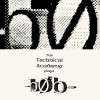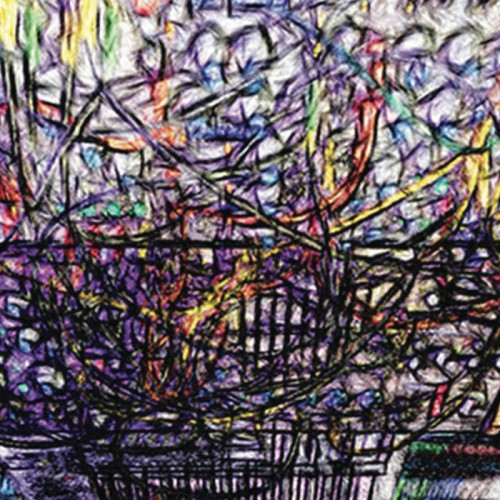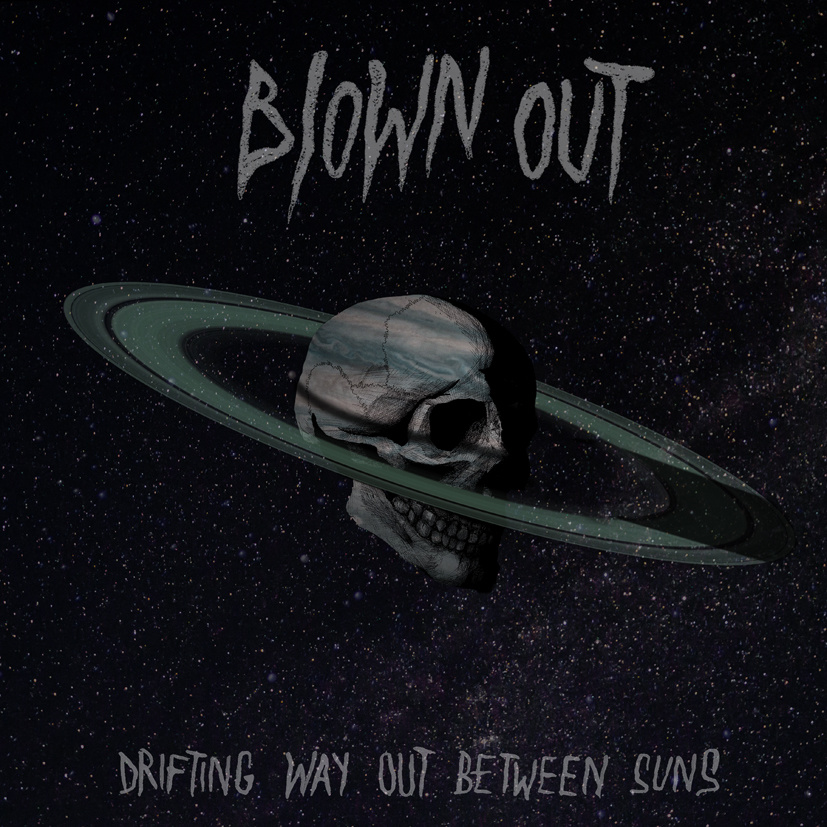 Remember when any miffed wannabe-Luddite music fan could be relied upon to heap opprobrium upon electronic music with the assertion that “it’s just push-button music”; “the synths are playing the songs” or dismissive words to that effect? That’s essentially what Bob Lee attempted to do, more or less, a quarter of a century ago with his cybernetic alter-ego -bøb-. Recovered from the only remaining recording Lee had in his possession, this Fixture re-release — also on cassette like the original home-made tapes — commemorates a unique experiment in machine music of the 1990s.
Remember when any miffed wannabe-Luddite music fan could be relied upon to heap opprobrium upon electronic music with the assertion that “it’s just push-button music”; “the synths are playing the songs” or dismissive words to that effect? That’s essentially what Bob Lee attempted to do, more or less, a quarter of a century ago with his cybernetic alter-ego -bøb-. Recovered from the only remaining recording Lee had in his possession, this Fixture re-release — also on cassette like the original home-made tapes — commemorates a unique experiment in machine music of the 1990s.
Instead of merely replicating the musical performance of humans, The Technical Academy were restricted in what they could play to instruments which would be possible for a person to perform on (such as a piano keyboard played with two hands) rather than the infinite virtuosity and range available to many other generative music systems. They were given a set of instructions and let loose to improvise via a MIDI-controlled synthesizer, the results then recorded without further human intervention, other than their creator’s benign interest in the resulting tunes. Significantly, Lee’s algorithms operated only in real time — the music was played live and could never be repeated in precisely the same way, so he made his selection of recordings to include on the album from those which worked out for the best as part of the same process of sifting through the best rehearsals, jams and recording sessions any record producer or band leader undertakes.
Freed from the weight of musical history and unconcerned by fashion, genre or non-algorithmic training, the bots of The Technical Academy sometimes make a kind of synthetic free jazz, exemplified by the “Quartz” series on side two. The results swing from the profoundly listenable to pieces where the discordances and jarring mood swings on display (a good example of this is the erratic “Poppa”) could perhaps try the patience of the most diehard avantgardist; and sometimes it’s even possible to conclude that just maybe this could be music unintended for non-robotic appreciation. Other pieces, like “Carnival’s Closed”, have the air of a collection of half-tutored children fumbling clattery rhythms and halting melodies from their instruments at a school assembly. However, those with open ears and up for a challenge will find much to draw them in, and not just because of academic interest the process which the music’s creation involved. Some tunes, like “Devils Dance” or “Psx4”, have a MIDI-file slow-rock quality to them, the sort of music which could easily grace centre stage in a replicant bar in the off-world colonies. However, there’s a definite difference in quality discernible here compared to the average MIDI sound file composed by humans and run through a sequencer on offer here, a sense that the first stumblings into a form of feeling are being exhibited by the bots. Perhaps that’s simple anthropomorphism at work on the part of the listener; no matter — it’s possible at times throughout the album to relax into the songs and enjoy them without too much concern for their origins. “Drum Dub” is a good example, where the frenetic percussion might easily be half-mistaken for that of a human jazz drummer at work (for some reason Jaki Liebezeit occasionally comes to mind), at least if not listened to carefully. Once again, it’s not really the emulation of a person which is of interest here, but how good the computer-controlled bots were at playing within the limitations which apply to them; and also crucially, not how much they play like humans — there’s too much of a peculiar sense of what constitutes melody at work here for that.There’s a bonus download track too, “Add Primitive Reference”, which Lee created using a different process, one where he input some of the -bøb- Forth source code through a text to MIDI note converter programme and recorded the results using the same Roland U-110 that The Technical Academy had played. The longest track on the album, it unfolds with an eerie cod-orchestral flow, electronic choral hits fluttering among an accumulating cycle of bass tones and repetitive plucked sounds to quite soothingly hypnotic effect.
For all it’s occasional moments which might provoke winces of discomfort if a person had been responsible for their production, The Technical Academy Plays -b0̷b- is often a weird yet thoroughly enjoyable listen, and of more than just curiosity value overall.
-Richard Fontenoy-


